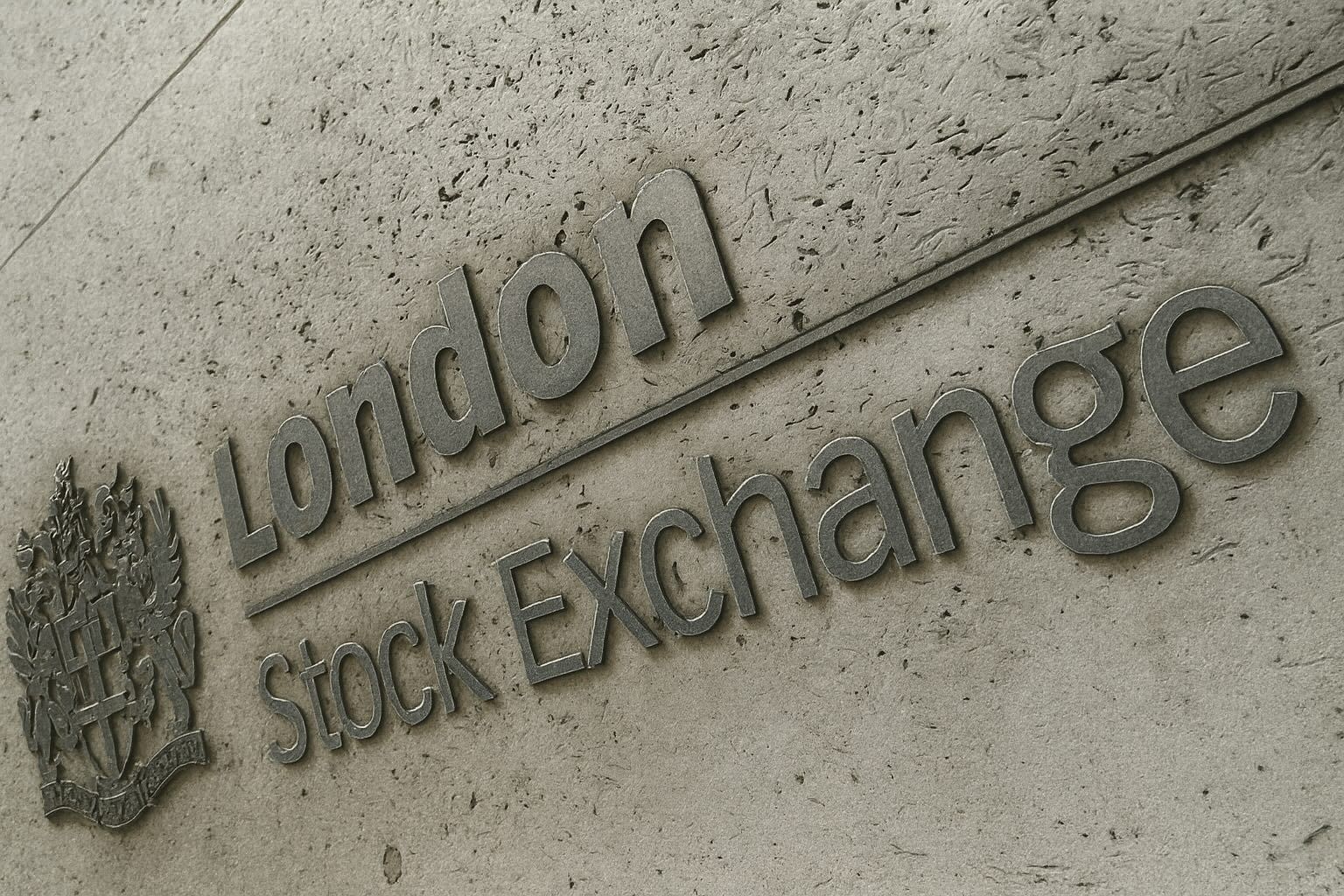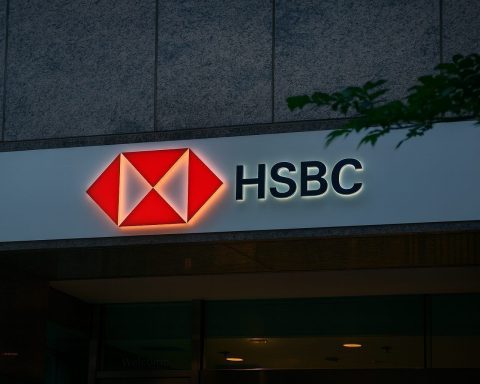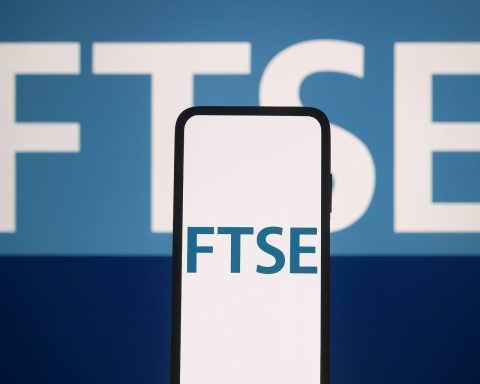London, 14 November 2025 — The UK stock market closed lower on Friday as investors dumped British government bonds and marked down banks, property stocks and other domestic names after reports that Chancellor Rachel Reeves has abandoned plans to raise income tax in this month’s high‑stakes Autumn Budget. A global sell‑off in technology shares and fresh worries about China’s economy added to the pressure on the FTSE 100 and FTSE 250. [1]
Market snapshot: FTSE 100 and FTSE 250 retreat from record territory
The FTSE 100 closed down 109 points, or 1.1%, at 9,698.37, having traded as low as around 9,610 earlier in the session. [2]
- Earlier in the week, the blue‑chip index had been flirting with the landmark 10,000 level, setting fresh record highs on Wednesday before two consecutive sessions of declines. [3]
- By midday today, the FTSE 100 was off as much as 1.7%, underscoring how jittery sentiment became once tax and gilt headlines hit the tape. [4]
The pain was felt further down the market:
- The FTSE 250 mid‑cap index fell 0.8% to 21,819.56, after being down about 1.5% at lunchtime. [5]
- The more growth‑ and small‑cap‑focused AIM All‑Share slid 1.2% to 746.51. [6]
Despite today’s sell‑off, both the FTSE 100 and FTSE 250 still ended the week marginally higher, up about 0.2% each, reflecting how strong the rally has been in recent weeks. [7]
Tax U‑turn rattles gilts and the pound – and spills into equities
The main domestic story driving the UK stock market today was political and fiscal rather than purely economic.
Overnight and morning reports suggested that Rachel Reeves has dropped plans to raise income tax rates in the 26 November Autumn Budget, in order to avoid breaking Labour’s manifesto pledge not to increase taxes on “working people”. [8]
Markets had already been pricing in sizeable tax rises to help close an estimated fiscal gap of £20–30 billion. The apparent U‑turn left investors guessing how Reeves now intends to plug that hole — and whether the government is backsliding on fiscal discipline just as borrowing costs have been coming under control. [9]
The reaction in gilts and sterling was sharp:
- The 10‑year gilt yield jumped from about 4.44% on Thursday to around 4.57%, a move of roughly 13 basis points, its biggest one‑day rise since early July. [10]
- 30‑year gilt yields climbed to around 5.39%, also up notably on the day, as traders demanded higher compensation to hold long‑dated UK debt. [11]
- The pound fell about 0.3–0.4% to around $1.31–1.32, giving back gains made after yesterday’s Q3 GDP release and adding another layer of uncertainty for international investors. [12]
Economists and strategists quoted across the City warned that repeated shifts in tax signalling risk undermining the UK’s hard‑won credibility after the turmoil of recent years. Some, including analysts at Peel Hunt and Goldman Sachs, argued that if income tax is off the table, the government may resort to a more piecemeal mix of other tax rises that could prove more growth‑unfriendly and harder for markets to digest. [13]
All of this fed directly into equity prices: higher gilt yields typically hit bank valuations, weigh on interest‑rate‑sensitive sectors such as property and housebuilders, and can drag on broader UK stocks via higher discount rates and a perception of increased political risk.
Global backdrop: tech rout, AI bubble worries and China slowdown
Domestic politics weren’t the only story. The FTSE 100 today was also caught up in a global risk‑off move.
- A hawkish tone from US Federal Reserve officials has reduced the perceived odds of a December interest‑rate cut, even after two cuts earlier this year. That pushed global bond yields higher and rattled equity investors. [14]
- Wall Street suffered its worst day in over a month on Thursday as high‑flying artificial intelligence and tech names sold off sharply; Nvidia, Tesla and other leaders of the AI trade have come under renewed scrutiny over stretched valuations. [15]
- Fresh data from China showed a record slump in fixed‑asset investment and weaker‑than‑expected activity at the start of Q4, casting doubt on the strength of the world’s second‑largest economy. [16]
European markets were hit in sympathy:
- The pan‑European Stoxx 600 dropped nearly 1%, while France’s CAC 40 and Germany’s DAX both slid around 0.7–0.8%. [17]
For London, this meant that the UK stock market’s domestic worries played out against a backdrop of global investors already looking to take risk off the table.
Sector moves: banks, property and bookmakers lead the fall
Banks and financials under pressure
Unsurprisingly, UK banks were among the worst performers in the FTSE 100 today:
- Barclays fell about 3.2%
- Lloyds Banking Group dropped roughly 2.8%
- NatWest Group slid about 3.6% [18]
Investors worry that fiscal uncertainty and a potential patchwork of tax measures will weigh on economic growth, loan demand and credit quality, just as hopes for a smoother rate‑cut path from the Bank of England had been boosting sentiment.
Insurance and savings groups were also active in trading data. On the interactive investor retail platform, Aviva, Legal & General and Prudential featured heavily among the most‑traded financials this morning, with flows skewed towards buyers – a sign that some retail investors see recent weakness as an opportunity to add income‑rich names. [19]
Real estate and housebuilders hit by gilt spike
Real estate stocks bore the brunt of the repricing in gilts:
- The UK real estate sector fell around 2.2%, according to London South East data.
- Land Securities – despite raising guidance for rental income and lifting its interim dividend – ended down more than 5%, as higher yields and tax worries overshadowed management’s upbeat message. [20]
Housebuilders were also under pressure, with Berkeley, Barratt Redrow and Persimmon all trading lower as higher long‑term borrowing costs and Budget uncertainty weighed on the UK housing outlook. [21]
Miners, energy and gold names
Commodity‑linked stocks painted a mixed picture:
- Gold miners such as Endeavour Mining and Fresnillo fell around 2–3% as bullion prices retreated after a strong run driven by earlier Fed cut hopes. [22]
- Energy majors were less central to today’s narrative, but Brent crude ticked modestly higher to the mid‑$60s per barrel, offering a little support to oil stocks. [23]
Consumer and gaming stocks
Budget speculation also spilled into consumer and leisure names:
- Bookmaker Entain fell nearly 4%, and William Hill owner Evoke more than 5%, amid expectations that gambling taxes could be an easy target for revenue‑raising measures in the Budget. [24]
- Kingfisher, the owner of B&Q, dropped about 4%, reflecting concerns over UK consumer spending and the housing market. [25]
On the upside, a handful of defensives and stock‑specific winners helped limit the FTSE 100’s losses:
- DCC rose around 1.7%, leading blue‑chip gainers.
- AstraZeneca, Burberry and Rentokil all posted small gains as investors rotated towards more resilient, globally diversified names. [26]
Corporate stories driving today’s UK stock market moves
Land Securities: strong guidance, weak share price
Land Securities (Landsec) arguably illustrates today’s uneasy combination of decent corporate news and poor market mood.
The FTSE 100 property group:
- Reported a rise in like‑for‑like net rental income and lifted guidance for the year to March, expecting 4–5% growth versus previous 3–4%.
- Increased its interim dividend modestly. [27]
Yet the share price still fell more than 5%, with investors focusing on management comments about slower leasing decisions as tenants await clarity on possible property tax changes in the Budget. In an environment of rising gilt yields, even solid fundamentals struggled to attract buyers.
Melrose: upbeat trading update, modest pull‑back
Engineering group Melrose Industries delivered what it called “strong earnings momentum”:
- Group revenue grew about 14% in the four months to the end of October, driven by a near 30% jump in its Engines division. [28]
Despite that, the shares still closed down a little over 1%, caught up in the broader market move and the rotation out of economically sensitive stocks.
PPHE Hotels surges on deal speculation
One of the day’s standout winners was PPHE Hotel Group, whose shares soared more than 16% after news that key investors were exploring a potential stake sale. The rally came despite the broader weakness in UK equities and highlights how stock‑specific catalysts can still dominate individual names even on a risk‑off day. [29]
DFS and UK consumer names
In the mid‑cap space, DFS Furniture ticked higher after reaffirming guidance and flagging cost savings that are helping offset a subdued consumer backdrop and pre‑Budget uncertainty. Investors appeared reassured that the sofa retailer can still deliver profit growth despite weaker demand. [30]
3i’s Action hangover still in the background
Although most of the dramatic 3i Group share price action took place yesterday, the private‑equity giant remained a talking point for the UK stock market this week.
3i:
- Reported a strong half‑year return and rising net asset value.
- But warned that softer trading at its key holding Action, particularly in France, could mean sales growth undershoots previous ambitions. [31]
That caution prompted a sharp rerating, with the stock having fallen in the region of 15–20% since Thursday’s results, according to multiple reports, effectively wiping billions off its market value and reminding investors how dependent some FTSE names are on single assets or themes. [32]
Macro backdrop: weak Q3 growth keeps pressure on the Budget
Friday’s moves also need to be seen in the context of disappointing UK GDP figures released yesterday.
- The UK economy grew just 0.1% in Q3 2025, down from 0.3% in Q2 and below expectations, with a cyber‑attack on Jaguar Land Rover hitting manufacturing particularly hard. [33]
- Industrial production fell and unemployment has nudged up to around 5%, intensifying debate over how aggressively Reeves should tighten fiscal policy later this month. [34]
Markets had taken some comfort from the idea that weak growth, coupled with moderating inflation, could push the Bank of England towards a rate cut in December. Today’s gilt sell‑off complicates that picture: the central bank must now weigh fragile growth against the risk that sloppy fiscal signalling leads markets to demand a bigger risk premium for holding UK assets. [35]
Retail trading trends: banks, engineers and growth names in focus
Data from interactive investor showed that UK retail investors were most active this morning in:
- Lloyds Banking Group
- Rolls‑Royce Holdings
- Legal & General Group
- Aviva
- Ceres Power
- 3i Group
- Taylor Wimpey
- NatWest Group
- Barclays
- Empire Metals [36]
Interestingly, most of these names saw a majority of trades on the buy side, suggesting that some private investors are using today’s pull‑back in UK shares — especially banks and income‑heavy insurers — as an opportunity to accumulate positions at lower prices, despite headlines about tax U‑turns and gilt turmoil. [37]
What to watch next for the UK stock market
Looking ahead, several factors are likely to drive the UK stock market in the coming days:
- Autumn Budget (26 November 2025): The central event. Markets want clarity on how a smaller‑than‑feared fiscal hole will be closed, and whether taxes on wealth, property, capital gains, gambling or business are targeted instead of income tax. [38]
- Gilt market stability: If gilt yields continue to climb, equity valuations — especially in banks, housebuilders, REITs and high‑dividend names — could face further pressure. [39]
- Bank of England communication: Any hints on the December meeting, particularly around how the BoE views fiscal risk and weak growth, will be scrutinised. [40]
- Global tech and AI sentiment: The FTSE 100 has fewer mega‑cap tech names than the US, but global risk appetite is still heavily influenced by the AI trade and perception of a possible “tech bubble”. [41]
- China data and world growth: Another leg down in Chinese investment or global trade could dampen sentiment for UK exporters and cyclicals. [42]
For now, today’s session underlines that even after a powerful rally and an approach to 10,000 on the FTSE 100, UK assets remain highly sensitive to fiscal headlines and global rate expectations.
This article is for information only and does not constitute investment advice. Investors should conduct their own research or consult a regulated financial adviser before making investment decisions.
References
1. www.lse.co.uk, 2. www.lse.co.uk, 3. www.theguardian.com, 4. www.lse.co.uk, 5. www.lse.co.uk, 6. www.lse.co.uk, 7. www.lse.co.uk, 8. www.lse.co.uk, 9. www.lse.co.uk, 10. www.lse.co.uk, 11. www.lse.co.uk, 12. www.lse.co.uk, 13. www.lse.co.uk, 14. www.reuters.com, 15. www.theguardian.com, 16. www.theguardian.com, 17. www.lse.co.uk, 18. www.lse.co.uk, 19. www.ii.co.uk, 20. www.lse.co.uk, 21. www.standard.co.uk, 22. www.lse.co.uk, 23. www.lse.co.uk, 24. www.lse.co.uk, 25. www.lse.co.uk, 26. www.lse.co.uk, 27. www.lse.co.uk, 28. www.lse.co.uk, 29. www.lse.co.uk, 30. www.standard.co.uk, 31. au.investing.com, 32. www.thetimes.com, 33. www.theguardian.com, 34. www.theguardian.com, 35. www.reuters.com, 36. www.ii.co.uk, 37. www.ii.co.uk, 38. www.theguardian.com, 39. www.lse.co.uk, 40. www.reuters.com, 41. www.reuters.com, 42. www.theguardian.com







